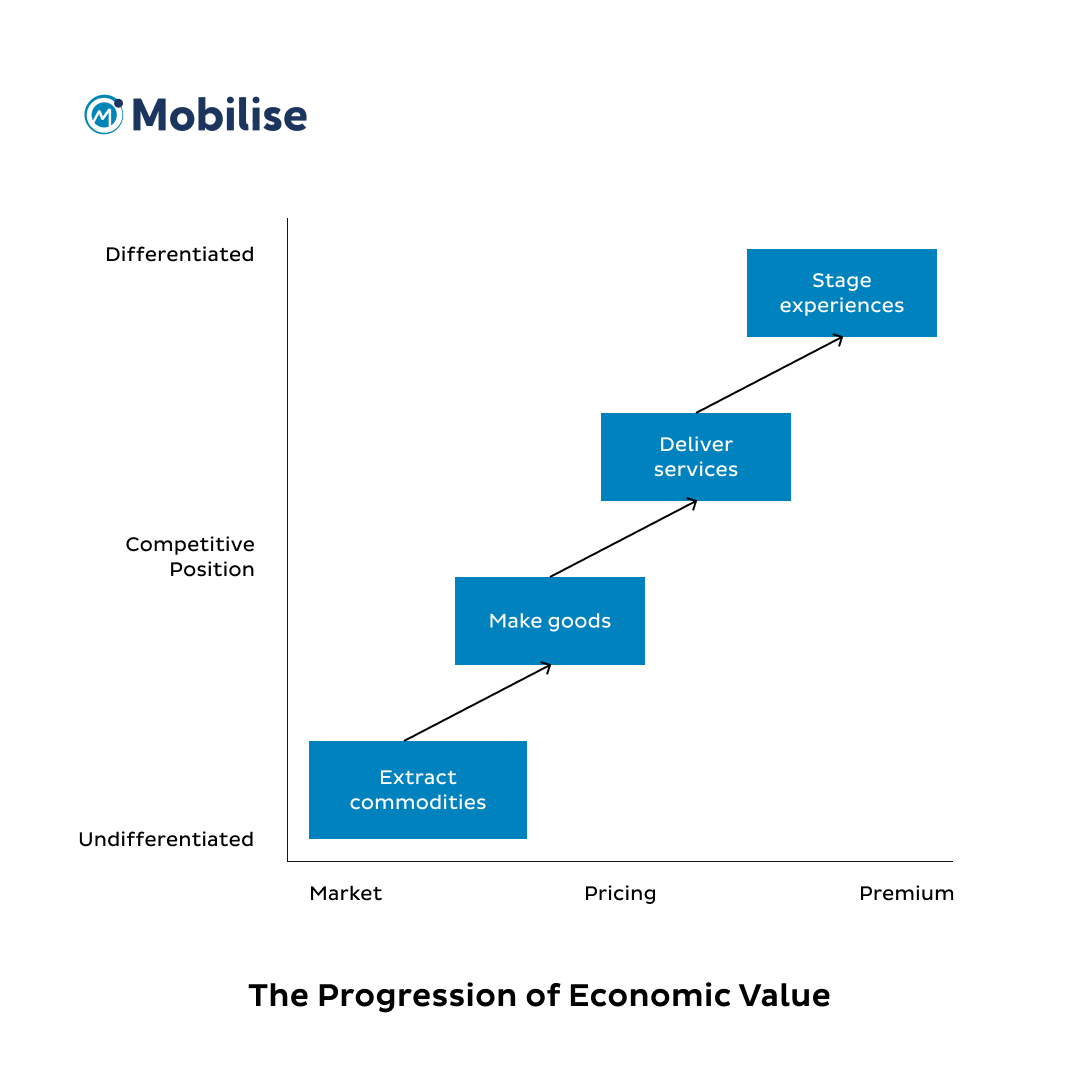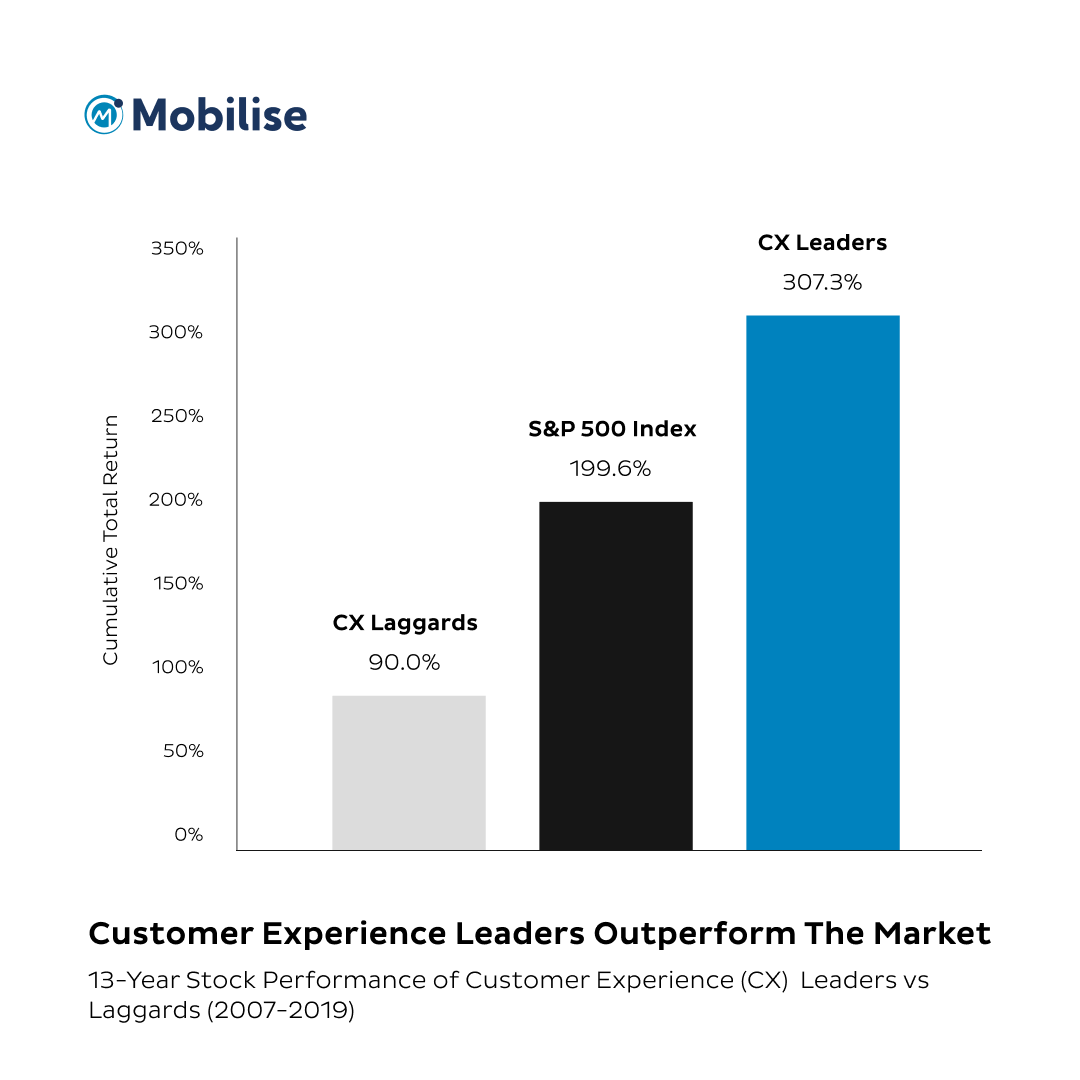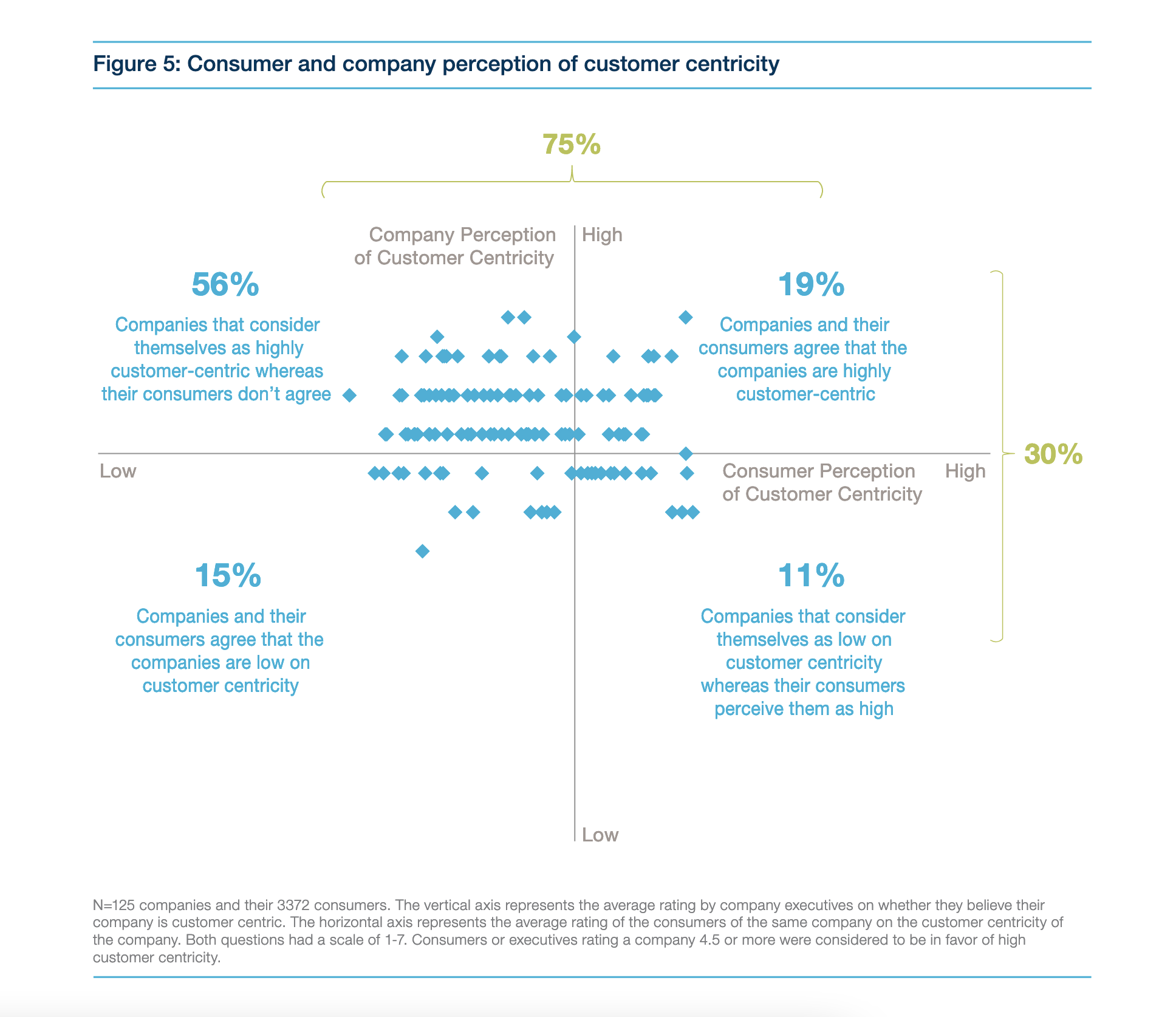We now live in an experience economy.
First coined in 1988 by Joseph Pine and James Gilmore, the experience economy favours the idea of selling experiences rather than products. It is the fourth great stage in consumer development, following commodities, goods, and services.

Adapted from: Harvard Business Review
Brands like Apple have built their business on delivering effortless experiences. For example, an Apple user can connect a phone with a computer, watch, and earbuds to consume music, TV, movies and other content seamlessly throughout a unified ecosystem.
You've got to start with customer experience and work back toward the technology, not the other way around.
Steve Jobs, Co-Founder, Chairman and CEO of Apple
Should telecom customer experience follow the same philosophy? We will answer this question in the following sections of this article.
Why are experiences important?
Experiences make people happier than material things.
Psychologists have discovered that experiential purchases make people happier for longer than material purchases. One reason is that we’re more prone to adapting to material possessions in a way we don’t with experiences. In fact, while our evaluation of material purchases is proven to decrease over time, our evaluation of experiential purchases increases.
Our tendency to reminisce about experiences with rose-tinted glasses is partly because they make for better stories than material things. This ties into two more reasons why experiences make people happier for longer.
Firstly, experiences comprise a more meaningful part of our identity.
In a very real way, we are the sum total of our experiences
Joseph Pine and James Gilmore, The Experience Economy
Secondly, they’re a better tool for fostering social relationships, which are essential to human health and happiness.
It goes without saying that making customers happy over time, thus increasing positive brand associations and benefitting from the halo effect, is the goal of any savvy marketer. By creating experiences around your product, you can escape the curse of adaptation and embed your product in your customers’ social currency.
RECOMMENDED READING:
Telecom’s digital customers – who are they and how do we reach them?
Wrap your product up with an extraordinary experience, and you’ve created a connection that can last years or decades. And in today’s hyper-competitive telecoms world, retention, loyalty and customer lifetime value (CLV) are all fundamental drivers of success for any telco. Hence, nailing telecom customer experience is crucial and should not be overlooked.
The most successful brands get this, which is why the brands with the best experiences have outperformed the S&P consistently since 2007.

Adapted from: Watermark Consulting
Creating an enduring telecom customer experience
But creating memorable experiences is not easy. Today, customers are fussy and impatient, and each brings their own unique set of preferences. For example:
- Some customers want their product or service tailored to their usage.
- Some want businesses to use their data to personalise the experience, but they also want their privacy respected.
- More and more customers want to interact over messaging or WhatsApp, but some still prefer an old-fashioned phone call.
Traditionally, customer experience has been interactions with members of the organisation providing the goods or services. However, as we move towards a digital economy, those experiences have evolved. Now, the majority of consumer experiences with companies involve no human interaction at all. Instead, they favour digital problem solving and servicing solutions. So, making these digital experiences feel personal, secure and simple is more important than ever before.
RECOMMENDED READING:
Challenges with telecom customer experience
The defining brands of the next decade will figure out a way to get the customer experience right. But the challenges to achieving outstanding telecom customer experience are more significant than many even realise.
According to Capgemini, 75% of companies believe they put customers at the centre of their strategy. However, only 30% of consumers seem to agree. Breaking it down geographically, the discrepancy is the highest in the US and the UK.

Source: Capgemini
An impressive 81% of UK and US companies believe in being customer-centric. However, just 40% of consumers agree that is the case. Furthermore, only 26% and 31% of consumers in the UK and the US, respectively, believe that businesses listen and understand their needs.
These findings speak to the fact that not only is the art of creating excellent experiences difficult, but, perhaps more importantly, for many businesses, there is a fundament disconnect between the customer’s and business’s perception of customer experience, which to close requires a profound organisational change.
Despite the challenges, the evidence is clear. Now more than ever, consumers demand simplified and intuitive experiences. And they reward the brands that deliver them. According to Capgemini, 81% of buyers would pay a premium for a better experience. And a study by Eventbrite found that as many as 75% of Millennials say that they value experiences over things.

Source: Capgemini
Conclusion
Today’s winners offer simple, personalised experiences that provide real value to the customer.
For an airline, retailer, or healthcare provider, this could mean using AI over the customer data from previous interactions to intelligently route them to the best support resource. For a telco, this could mean allowing customers to build their own tariff plan, providing omnichannel support or offering eSIM in-app activation as the best onboarding journey.
We’re all consumers. We all know what it feels like to have an amazing experience. And the tools are available to enable better experiences at scale.
So then, what are you waiting for? Join the experience economy and build an excellent telecom customer experience today!



